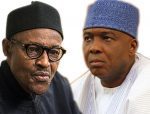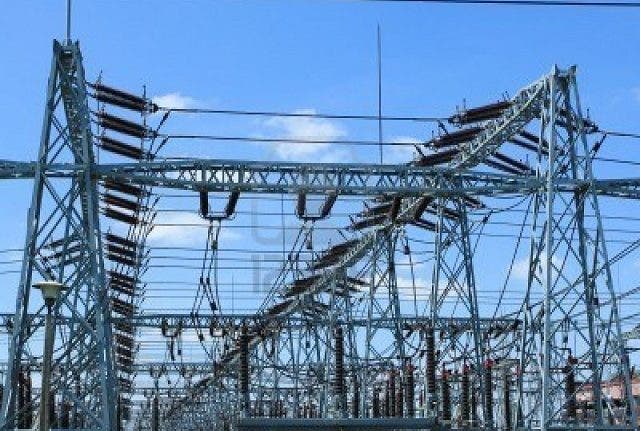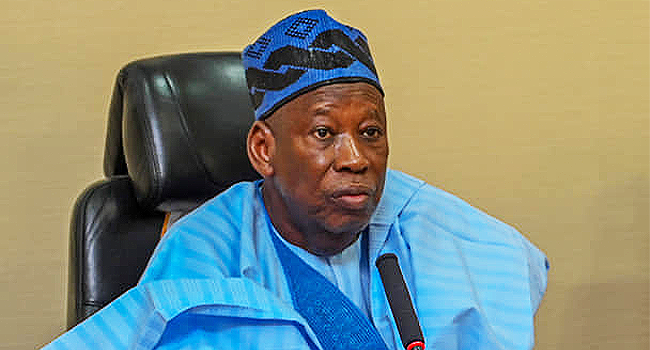‘The Voters Demand Money; They Won’t Vote Unless They Get It’ By Lasisi Olagunju
The Ekiti State governorship election has come and gone. Congratulations to Dr John Kayode Fayemi. The election has been won and lost and lessons have been learnt (and unlearnt). Money was generously dispensed by those who could access the strongroom of power. What misfortune would drive otherwise respectable people to run from street to street scampering for election money?
But could people really dump their preferred candidate 24 hours to an election because of money? Did money really buy alien votes and change anything in that election? Is it not true that vote-buying politicians ultimately end up paying their own supporters? Questions!
However, before you hang the Ekiti voters who sold their votes on Saturday, find out first why some wives demand money from their husbands before (or after) sex. Or why some sell it by the roadside. Or why the buyers pay for it. Why 18th century England approved “treating voters to food and drink in heroic quantities in order to gain their favour.”
Why 19th century United States had an Adams County in Ohio where mothers “sold the votes of their sons and husbands”; where sisters “battered away the suffrage of their brothers and fathers”; and where male children look forward to clocking the voting age of 21 so they could raise money selling their votes. And why in your village, kingmakers still collect money from all contending princes and then enthrone the biggest spender, quoting the oracle.
Buying and selling is a money matter with the poor gravely disadvantaged. The elite do the buying of votes – they don’t vote and they rarely risk going out on election day. They do not have the stamina for long waits on demeaning queues. They stay, therefore, at home, patriotically monitoring election results on television and on the internet. So, everywhere, those who vote are mainly the deprived who need money to buy pepper and melon and a cup of gaari.
To win elections, the power elite make the voters poor and famished off-season. The poor will go for anything when the time is ripe to use them. The power elite know this and they quietly lay in wait for these human commodities at the threshold of elections. They feed the eager with survival rations – slow poison, enough to last a term. They renew the potency every election cycle. This happens everywhere you go, north to south.
I have friends who hissed at the old and young who scrambled for election cash in Ekiti. I tell them to not just condemn the vote vendors and leave out the dirty politicians who debauched the process. The Ekiti voter is not alone in that sorry market. Every major party there was also a slave merchant. Beyond Ekiti, buyers and sellers are everywhere, in all states. It is just that the Ekiti yokels were very careless to be cheaply caught on camera. The blight is even not a Nigerian copyright. It is open and you could do the trade even on the streets of the United States.
The January 15, 1911 edition of The New York Times Sunday Magazine reported the scandal of Adams County. That is a place that “seems like a place set apart for the good things in life, but it is the rottenest borough in the civilized world.” Why? Because it was a huge, open market for buying and selling votes. “Frequently I handle $16,000 in an election,” the report quoted the wealthiest man in the county. “It is the only way you can carry an election here. I back candidates as other men back racehorses. It’s fun to win. Wrong? It is the only way, I tell you. The voters demand money. They won’t vote unless they get it.”
The American system took care of that cesspit but in other places, variants of the problem popped up and won’t just disappear completely — even today.
The price of votes is historically ridiculous. In Ekiti on Saturday, it was a pot of meatless soup per voter. Elsewhere, it could be worse. “The price of one bona fide, registered American vote varies from place to place. But it is rarely more than a tank of gas,” said The Washington Post in a 2012 report on vote buying in the US. The reason in that country is the reason everywhere: politicians are perceived as a lying, sadistic bunch of greedy buffoons who would cast the voter overboard so soon after the votes.
The Nigerian voter, therefore, has reasons to be cynical – to be morbidly distrustful of politicians and their ways. But it wasn’t like that at the beginning. At least, in the first and second republics, people cheerfully voted based on convictions – and even defended their votes with their sweat and blood. Something snapped later in the huge frame of the body politic and all trusts vanished. The system has dealt very badly with the Nigerian voter over the last three decades plus. His humanity has been degraded through repeated rape by leaders who promised heaven and delivered hell. The violated voter today looks for a way to respond in like manner.
One way is to subvert politics, politicians and their rules by collecting money from all parties and voting his mind. A short video clip released at the weekend by the BBC on vote buying and selling in Ekiti State tells this story of cynical subversion in a gripping manner. An old woman tells the BBC undercover reporter that she just collected N4,000 from a political party for her vote. “Who did they say we should vote for?” she is asked. “Anyone you like,” she responds very audibly- then looks around, looks away and whispers her buyer’s opponent’s name as the person to vote for. She says so and feels good, feels no revulsion at her duplicity.
And why would voters not install prepaid chips in their voter cards? After election, they know politicians always press the pause button, halting all love matters.
“At first I wanted to denounce the people taking the money, but then I realized these folks are disgusted and disenchanted. They don’t believe politicians work for them. If voters aren’t going to get better schools or new roads by voting, they might as well get a free lunch or extra cash,” writes Mary Frances Berry in a book on vote buying and vote selling in the US state of Louisiana. The title of that her 2016 book is “Five Dollars and a Pork Chop Sandwich: Vote Buying and the Corruption of Democracy.” That title mimes our own homegrown sound bite: “Vote and cook soup.”
It is cool and sweet to cook soups with free money – it is just that the life span of that vote and its pot of soup is very long. They stick around with their deleterious manifestations for at least four years. And the voter’s suffering continues because it is a vicious cycle: The people sell votes because the system deliberately impoverished them; they continue to suffer – and they sell votes again, and they go hungrier.
Can’t we do something about this? The world knows we have a law criminalising vote vending and buying. We actually have a law outlawing every bad behaviour retarding our growth. But the crime world is aware too that we don’t enforce our laws — especially when they are flouted by the power elite or in partnership with them.
The law in the US imposes “a fine or imprisonment on anyone who offers or accepts payment either for registration to vote or for voting.” And they enforce it, strictly, without fear or favour. Our own Electoral Act (2010) expressly states that anyone who buys or sells votes “commits an offence and is liable on conviction to a fine of N100,000 or 12 months imprisonment or both.” Has anyone ever been caught and punished by this law? The law would be loudly applied and enforced if it limits its paws to the neck of voters. It oversteps its bounds by seeking to jail vote buyers. Politicians are the ones who buy votes — and they are above the law. The poor are the vulnerable ones you see on vote queues. But they are lucky and free too because the law can’t decouple the seller from the buyer.
The difference between good and bad conduct is adherence to rules. And obeying the rules is not just about the people avoiding crimes; it is also about the state enforcing its laws across the board. When a sore is left untreated, it festers and stinks to the heavens on high. A paragraph in the 2012 Washington Post piece earlier quoted is interesting: “ ‘The first votes I ever bought, I paid a half a pint or a pint of liquor, whatever it was, for it. And then as time went on, $5 a vote, $10 a vote. I have paid as high as $800 a vote,’ said Kenneth Day, a methamphetamine user and convicted criminal who was involved in a long-running vote-buying operation in eastern Kentucky, United States. Wearing prison orange, he was testifying in a 2010 trial that sent eight others to prison.” Among the jailed were the patrons of the felon. This case shows that in that country, crime has a price and the criminal pays – definitely.
We are told that in a democracy, the people are the sovereign. Elections and their votes are the only reasons they are so described. What then happens when the wealthy deploys his awesome riches to buy that power off the people? The buyer becomes the sovereign in its absoluteness. And the people go back home lost and naked after the vote. And democracy and good governance get lost. The term and tenure of the elected soon expire. Then the distraught people change the buyers and the cycle (or cyclone) continues in its vicious rage. But optimists think the debauchery will leave Nigeria one day, soon. I tell them I agree – but I remove the ‘soon’.










